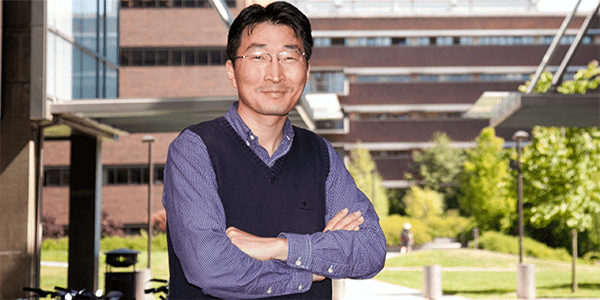UW Bioengineering Associate Professor Deok-Ho Kim was recently named as a New Innovator in NANOMED 2018. This award from the Institute of Electrical and Electronics Engineers (IEEE) recognizes individuals who have demonstrated exceptional early career technical advancement and innovation in the field of nano/molecular medicine and engineering. Dr. Kim and other recipients of the award will be recognized at the 2018 IEEE International Conference on Nano/Molecular Medicine and Engineering, which will be held in Waikiki Beach, Honolulu, Hawaii, Dec. 2-5.
To be eligible for the New Innovators in NANOMED award, researchers must have been within 10 years of receiving their highest degree. Selection criteria include the significance of the candidate’s research to the field, their demonstrated innovation and impact, and their contribution to the IEEE NANOMED community. Awardees will deliver presentations at the conference, and receive a registration fee waiver and honorarium.
Dr. Kim’s research spans the disciplinary boundaries between biomaterials, nanotechnology and cell mechanobiology, with an emphasis on applications for tissue engineering and regenerative medicine.
Through the use of multi-scale fabrication and integration tools in combination with human pluripotent stem cell technologies, the Kim lab focuses on the development of biomimetic microenvironments and functional tissue engineering models for developmental biology, disease modeling, drug screening and cell-based therapies. Specific projects include human iPSC-based microphysiological models of neuromuscular and cardiac muscle disease, mechanobiology approaches to studying human diseases, micro/nano-fabricated assay platforms for drug efficacy/toxicity screening and functional biomaterials for regenerative engineering.
The Kim lab ultimately aims to better understand complex cellular behavior in response to microenvironmental cues in normal, aging and disease states, to gain new mechanistic insights into the control of cell-tissue structure and function and to develop multi-scale regenerative technologies for improving human health.
Learn more about the Kim lab



